RTÉ's Foreign Editor Eimear Lowe is in Afghanistan. Since the Taliban takeover last August, the country is at breaking point and the Taliban government has been shunned by the international community.
It's been six months since the Taliban swept across Afghanistan to seize power in recently vacated Kabul.
Last August, as thousands of petrified Afghans tried to flee the country, the West watched aghast and ashamed by the fate of those who had been left to live under Taliban rule.
Now, six months on and the country has returned to a tentative reality.
But people here are guarded and much like the Northern Ireland of the '70s and '80s, you don't talk politics or religion.
The government of the 'Islamic Emirate of Afghanistan', AKA the Taliban, has come to government at a challenging time.
The West, in response to its takeover last August, blocked access to the country's foreign currency reserves and sanctions against Taliban leaders have stopped foreign investment.
They can no longer cover government salaries and aid agencies are picking up the tab for medical and teaching staff.
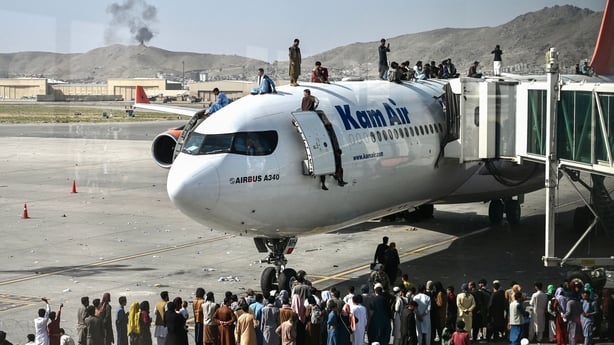
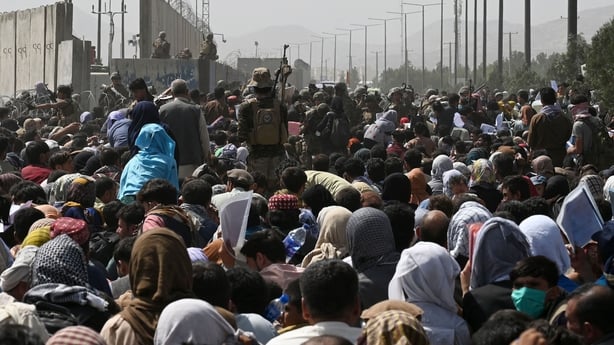
With NGOs warning that 97% of the population will fall under the poverty line by the middle of this year, the Taliban government desperately needs access to the reserves currently blocked by the US.
Abdul Qahar Balkhis, Talib spokesperson for the Ministry of Foreign Affairs, says that the humanitarian crisis unfolding in Afghanistan is entirely manmade.
"The international community, the champions of Human Rights are not allowing Afghans their right to life... They're giving them a choice. Either change your society to ours or we will starve you to death."
But he rejects that the Taliban has any role to play or concessions to make which might sweeten the deal for the West.
"We're not looking for charity. We're not looking for donations. We're looking for the world to treat us as equals, to give us our right and access to international markets and the international banking system, and to allow other countries that do wish to invest in Afghanistan, in its development both economically and socially."
Balkhis clearly feels that the response of the international community to the Taliban takeover is deeply unjust. And he rejects any suggestion that that response is warranted.
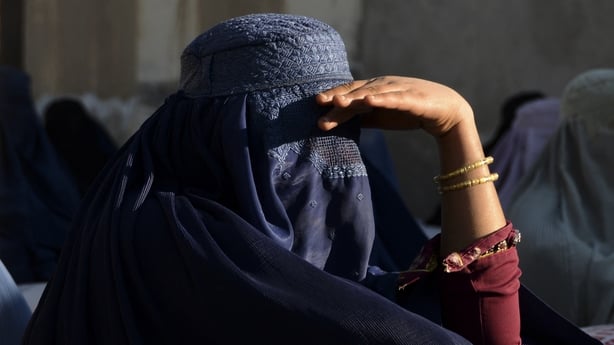
When asked about the atrocities committed by the Taliban during the protracted conflict, he tells me: "We did what we had to, to gain our liberation. With what we had."
There are no concessions, no expression of regret for lives lost, just clear-eyed certainty that it was all necessary to get rid of the "oppressors" who had tried to colonise Afghanistan.
But hypocrisy is never too far away. When asked if it's not the right of the international community to withhold money if they're concerned about human rights, he says without any trace of irony "they kill a million children, they call it leverage. It's not leverage, you're killing children, you're killing women, you're killing men, you're killing elderly".
Given that he is involved in the governance of a country that is almost entirely dependent on aid, there is another eyebrow raising claim. "We do not seek donations. We're not a charity. We're not a people who live off charity."
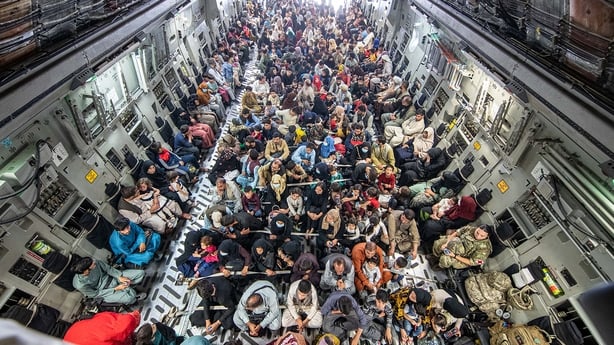
I ask him how it felt to see the abject terror that the Taliban advance last August had on many people in his country, referencing the scenes at the airport.
He rejects that the people gathered there were terrified of life under Taliban rule, maintaining that it had more to do with economic migration than anything else and that they wanted a free ride to the US.
He says that, according to the latest figures he has seen, around 5,000 people who fled the country in August are now returning to the country because of the conditions for them in other countries.
On the issue of women, Balkhis insists that Afghanistan is an equal society and says he cannot understand why I would think otherwise.
He patiently explains to me several times that I see equality differently to him and that there is no set definition. This last part is news to me, I thought there was a universal understanding of equality.
The entire premise of his argument on every issue that we discuss is that Afghanistan has a different culture and that I am looking at things through the prism of someone brought up in the West.
He has an enviable lack of self-doubt. Everything is very simple for him and several times he tells me that the laws he follows are drawn from a divine religion while mine are manmade.
That deep faith and commitment to his ideology makes me question whether he and his fellow Talibs can progress.
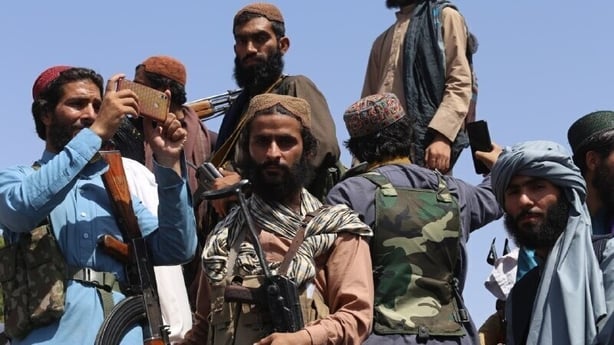
If they are so rigidly adherent to an ancient religion, then can there be any scope to move forward on issues?
Balkhis tells me firmly, perhaps with the first hint of any anger throughout our conversation, that if progression means women throwing away the veil, then the Taliban won't progress.
Listening back on our conversation, it does appear to me that a lot of the focus of his religious beliefs seems to be on the control of women.
But we end the conversation on a positive note, talking about the future of Afghanistan.
He tells me that if I come back in five years' time, he hopes it will be very different. He wants the country to be economically prosperous and at the crossroads of Asia. He predicts that there is a lot of room for Afghanistan and the West to work work together in this global village.
And on that all-important question of women, he tells me that he hopes they will be given all the Islamic rights in five years' time.
For the women of Afghanistan, 2027 can't come soon enough.





